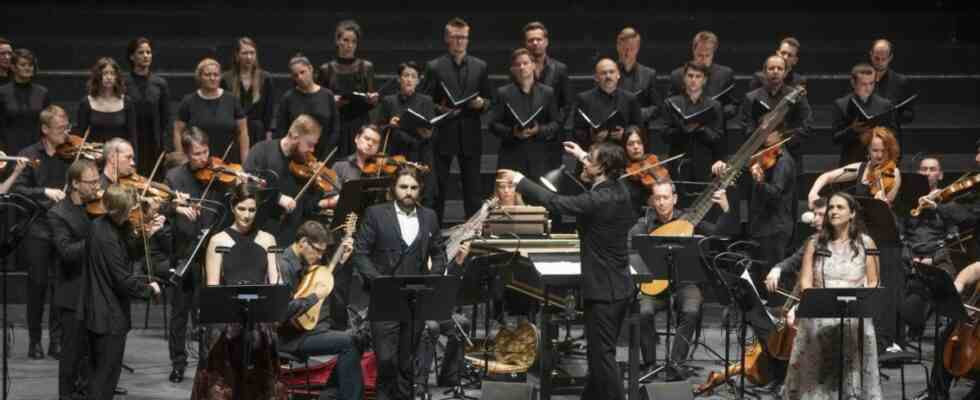Teodor Currentzis doesn’t just conduct concerts, he doesn’t just work out the score and come up with new sound results. No, he celebrates this quest, like now in the Great Salzburg Festival Hall, in front of the eyes and ears of an astonished audience. These concerts are events on the borderline between sparkling entertainment and in-depth art experience. So also a slight change and broadening of the view of the familiar. For Dmitri Shostakovich’s 14th symphony, this meant that the accusation of death was even sharper than usual, the orchestra held back even more depressively and put the action in the voices of the highly expressive soprano Nadezhda Pavlova and the vocally strengthened baritone Matthias Goerne.
Currentzis dedicates himself equally to both levels of sound with his typical empathetic fury of movement, which always relies on direct communication, often very close face to face. And so, as a listener, one gets caught between the creative fronts, although one hardly understands what is sung in Russian – there are two other, mixed-language versions – but can read the poems by Guillaume Apollinaire, Federico Garcia Lorca, Wilhelm Küchelbecker and Rainer Maria Rilke set to music here read along. They are all intense linguistic works of art, texts about war, about dying, about the “great death” (Rilke). There is no hope, only infinite sadness.
First love, then sorrow
Anyone who believed that Henry Purcell’s opera “Dido and Aeneas”, which followed in a concert version, could now comfort and lift them up was impressively deceived. For as wide-legged as Currentzis is here in front of the huge array of choir and orchestra of his ensemble formation “musicAeterna” is written, so finely spun, sometimes at the limit of what is audible, the farewell to life takes place here too. At least, a little love comes before suffering. And the magnificent choruses – extremely precise even in frenzied tempi – are blissful islands in the sea The ensemble of soloists is largely convincing: Kate Lindsay as Dido, Nuria Rial as Belinda, Konstantin Krimmel as Aeneas and the great countertenor Andrey Nemzer as the sorceress.
But despite the individual performances and the perfect interplay of vocals and instrumental ensemble, the real highlights in Dido’s long Liebestod were often the little things of phrasing, such as a narrative string legato that is otherwise foreign to the aesthetics of early music, or the sharply profiled cellos, which never – as usual – came up with roughly torn strings. On the other hand, some tempi became sluggish, the singers lost expression and narrative vitality. But when at the end not only the tempo and volume, but also the stage lights were dimmed down to complete darkness, one was caught up in this gloomy realm of death. Big cheers for everyone.

